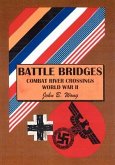In the early fifties, at the close of the police action in Korea, many of the men that remained on active duty in the U.S. Navy were combat veterans of WWII and Korea. They were a collage of dedicated sailors who loved and embraced Navy life coupled with others who simply believed that they had given their best years and had no other options but to remain in the Navy. Some men hated who they were, where they were and what they were. They saw nothing meaningful in their future. Their lives were as good as they were going to get. Three squares a day, a dry place to sleep at night and payday every two weeks. These men were salts and lifers. Whatever their reasons for being in the Navy in 1954, the lifers had one thing in common, their ship was their sanctuary and they were of a fraternity of service, baptized by years of blood, sweat and tears. Many of these salts strongly resented the intrusion of recruits into their domain. New men were tested, cajoled, pushed and punished. They were judged by an unwritten, frequently biased standard and racism scarred the routine of shipboard life. This amorphous, subliminal, fraternal order brought judgment upon new crewmen. Their judgment ranged from isolation to elimination. Three deaths during my first months aboard ship made all this vividly clear to me. A razor in the hands of a maniac lurking about at night nearly cost me my life. To make circumstances worse, I was viewed by some of the crewman as a prime suspect to be the cutter and by some crewmen as his prime target. I soon learned who I was, and what I was made of.







